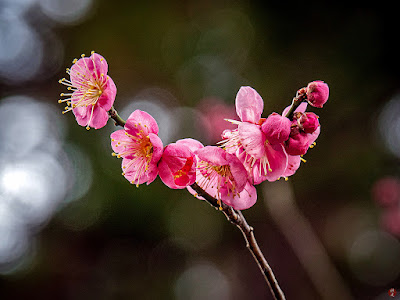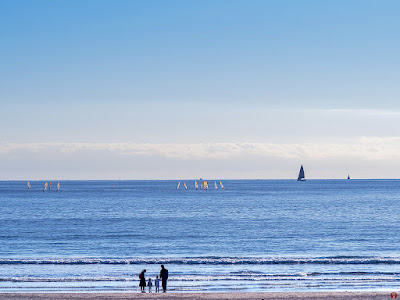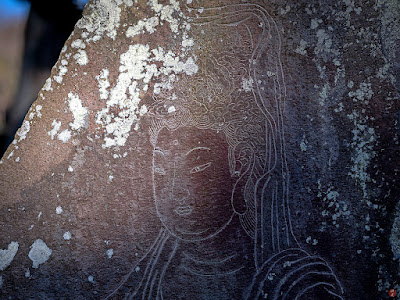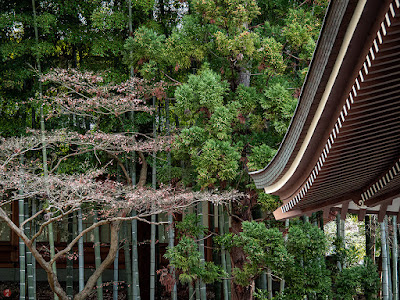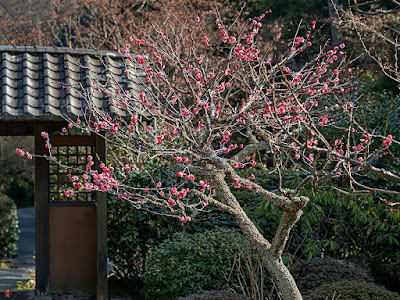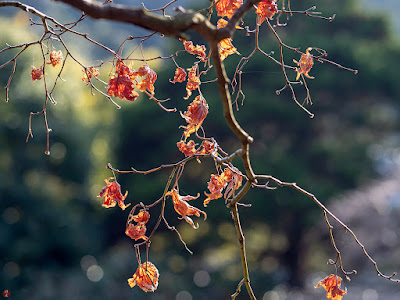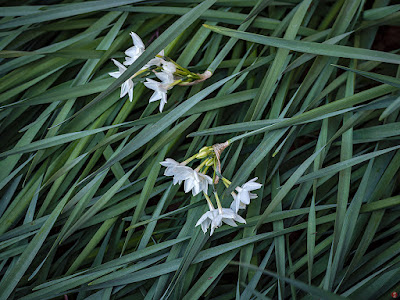Mt. Fuji crowned with pure white snow is towering beyond the finely rippling surface of Sagami Bay like a mythical all-knowing sage.
Far above the chilly azure sky, the silver clouds are lingering quietly, while shining radiantly in the afternoon sun of late winter.
A flock of black kites keep gliding soundlessly over the gently waving sea to intently seek for their precious food in the cold wind.
The pellucid sunlight of winter that brings such blue clarity of the seascape will soon be over, and the tender sun of early spring will dominate this world progressively.

